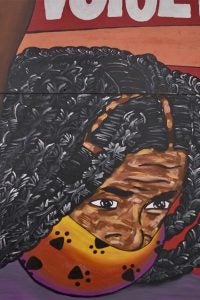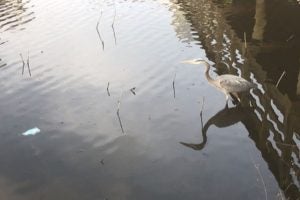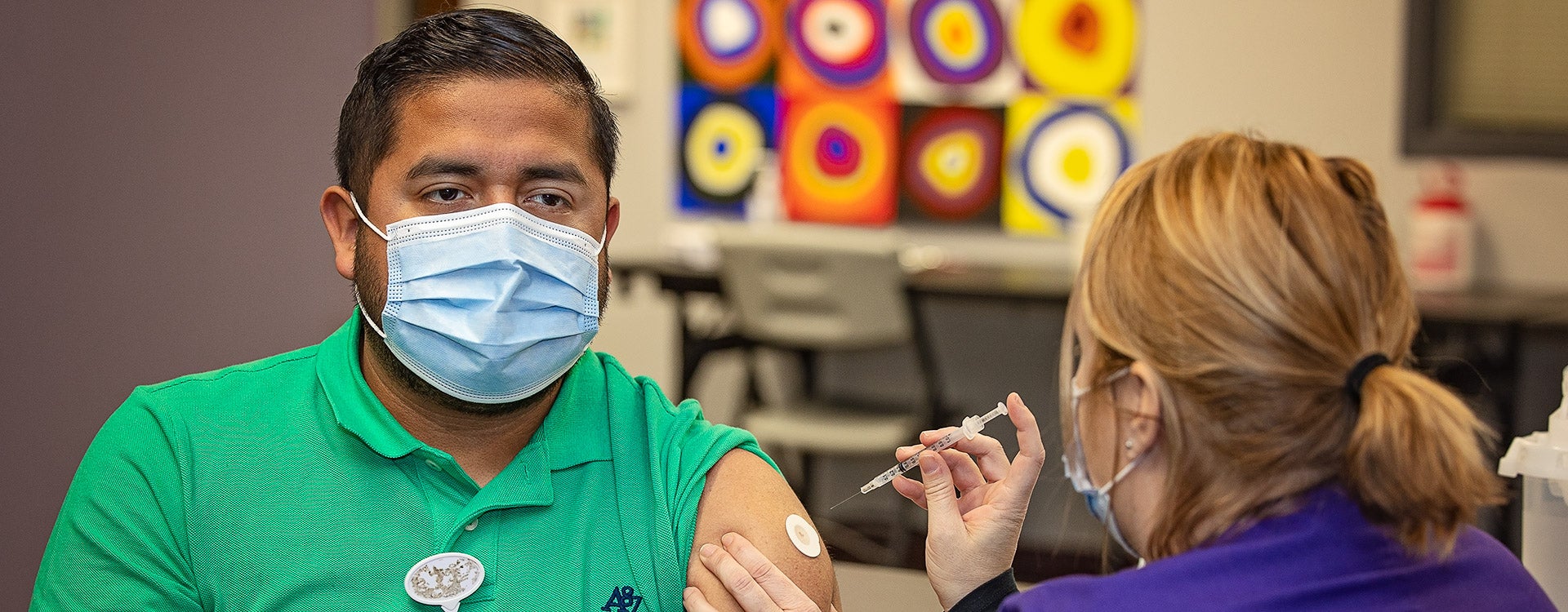How campus is documenting COVID-19
Although it might have been a new experience, students in the East Carolina University School of Social Work embraced the opportunity of photovoice to document the impact of COVID-19 in their communities.
Faculty members Drs. Jennie Ann Cole and Mi Hwa Lee led a class assignment in the spring of 2021 in a qualitative research course that had students branch out to take photographs that portrayed the impact of the COVID-19 pandemic.

Shawn J. Johns took a photo of this art mural in Kinston for one of his entries in an ECU social work COVID-19 impact art project. (Contributed photo)
Students described how their images reflected on their thoughts and experiences with the pandemic. Their photographs and corresponding narratives will be featured at the Turnage Theater in Washington through July.
“We asked them to take three photographs that resembled experiences for them as they were having to go online (for classes), but also what does this mean for their community and for social work education?” Cole said. “They just did a really great job, to be quite honest. It turned out to be a fantastic project. … Using systems theory, they went out into the community and took photographs and then presented it on Canvas. I think it was very powerful.”
Elsewhere at ECU in a similar project, Academic Library Services on main campus and the Laupus Health Sciences Library worked together to document COVID-19 in eastern North Carolina. They encouraged campus members and Pitt County and eastern North Carolina residents to provide personal submissions, which could include journal writing, photography, poetry, audio recordings or screenshots of social media posts, about the effect of the pandemic. Submissions are being collected for special collections archives.
The exhibit involving social work is titled, “Art as Testament to the Impact of COVID-19 on the ECU Student Body” and funded by The Puffin Foundation.
Photovoice is a community-based research method that allows people to identify, represent and enhance their community through photos and reflection.

A social work student used this photo to show how disposable masks can become litter in public settings. (Contributed photo)
Student Shawn J. Johns, an Indiana native who moved to North Carolina via his military background that included combat tours in Iraq, joined the Navy and served in the U.S. Marine Corps at Camp Lejeune before moving to Kinston in 2016. He said the photovoice project has been his favorite at ECU because of its multiple layers and versatility.
“It definitely made me think outside of the box and think bigger, not just how COVID affects me, but how COVID affects the community,” Johns said. “Obviously as a social work student, we learn how policies and changes affect the community, but that one really made me kind of take a step back. I saw how COVID affects me and my family, but also the community and different ethnicities.”
Photographs mainly represented economic impact, mental health impact, mask mandates and social distancing requirements. Themes included shared living experiences, such as online learning and limited campus life, and core social work skills like empathy, empowerment and analyzing different perspectives.
One of Johns’ photos was of a mural in Kinston, displaying a Black man in protest while wearing a mask. Johns wrote in his caption how the mural showed the balance of how wearing masks could slow the spread of COVID-19 versus how they might be a barrier and part of division with human interaction, which Johns said became apparent in 2020.
“The African American community is trying to rebuild a lot of parts of the town and kind of display the history that comes to the community from Kinston, whether that’s through music or other things,” Johns said. “That mural actually had a lot of music-based stuff that came with it. The individual is protesting and he has a mask on, so I just thought, ‘Wow, that is perfect.’ We are showing how COVID affects protests and the African American community, which not only has been oppressed for years, but now they are being oppressed even more because they had to wear a mask and a lot of individuals thought that the mask was oppressing their individuality. That is what I was trying to capture with that photo.”
Lee and Cole have plans to continue the assignment, with possible tweaks mirroring pandemic shifts since last year. Cole was satisfied with how students used the assignment to be thoughtful and purposeful with their entries.
“It gave the students an opportunity to embrace the experience and really grab that silver lining and stay positive,” Cole said. “We were learning about all the challenges people were going through with mental health and how we could help them in ways we couldn’t see, because we weren’t in the classroom. Also on a larger societal level, we’ve looked at how this is going to change how we handle social problems and the way we handle education, too. We have to be really innovative.”
